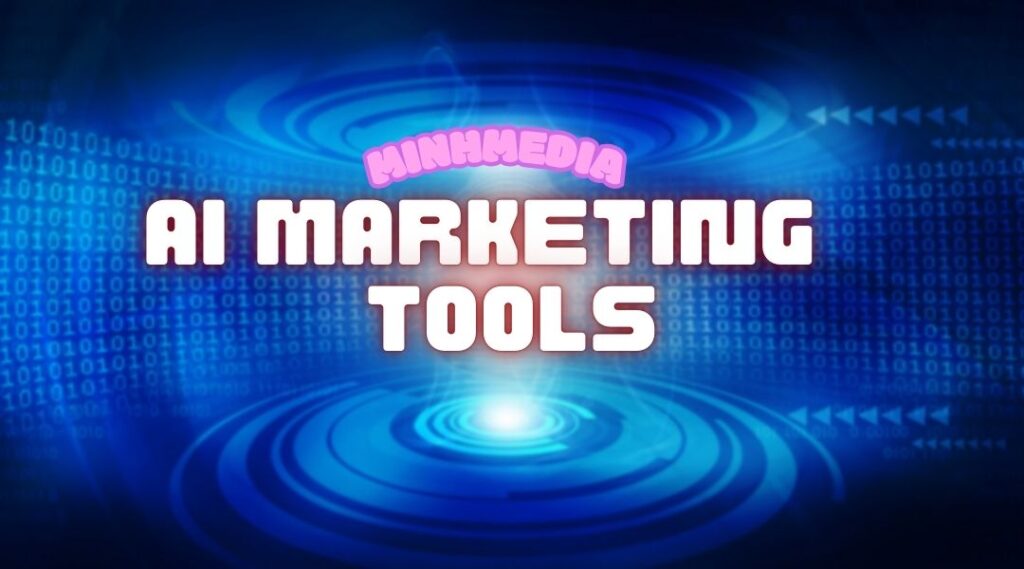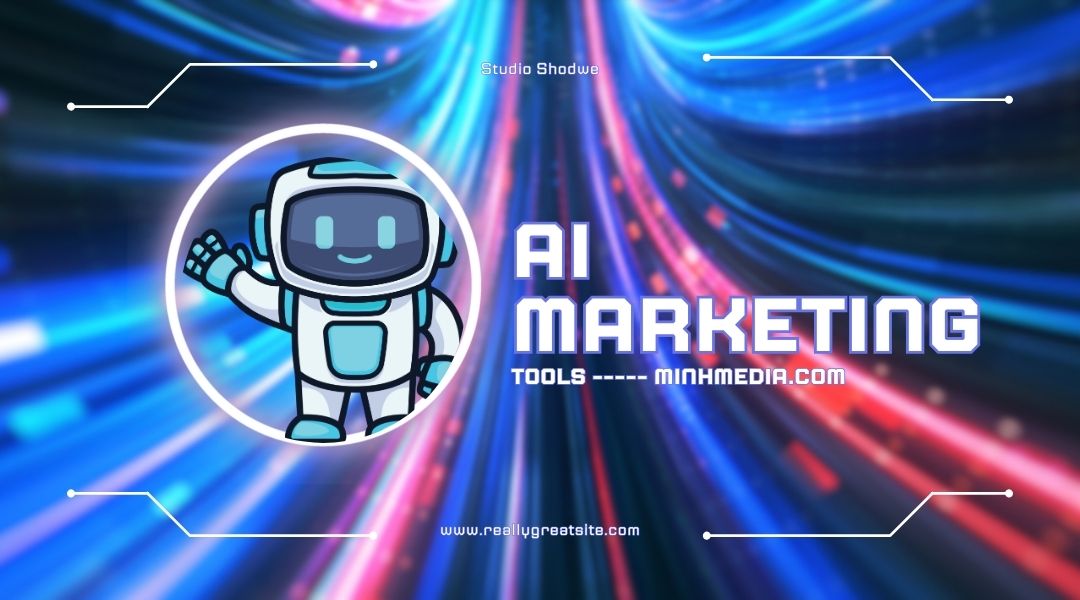1. Introduction: The Growing Impact of AI in Marketing
The landscape of digital marketing has been profoundly transformed by AI. From automating content generation to enabling hyper-targeted personalization, AI Tools for Marketing have revolutionized the industry. In 2024, businesses of all sizes are increasingly relying on AI to streamline their marketing operations, boost efficiency, and deliver personalized customer experiences. This guide aims to provide a comprehensive overview of AI marketing tools, their benefits, and how businesses can leverage them to scale and optimize marketing efforts.
2. What Are AI tools for marketing?
Definition:
AI tools for marketing are software applications powered by artificial intelligence (AI) that assist marketers in automating repetitive tasks, analyzing large datasets, personalizing customer experiences, and generating marketing content.
Mechanics:
AI tools for marketing use machine learning, natural language processing (NLP), and deep learning models (such as GPT and DALL-E) to perform a variety of tasks. These tasks include content creation, customer segmentation, predictive analytics, and campaign optimization.
Importance for Businesses:
Adopting AI tools for marketing allows businesses to:
- Enhance marketing efficiency by automating time-consuming tasks.
- Improve personalization at scale, providing targeted content to the right audience at the right time.
- Gain deeper insights from data to make informed, data-driven marketing decisions.

3. Top AI tools for marketing in 2024
Text-based Tools:
- Jasper: Known for content generation, Jasper uses NLP to write blogs, emails, and social media content, making it an ideal tool for long-form content creation.
- Writesonic: Similar to Jasper, Writesonic focuses on creating SEO-friendly text for articles, ads, and even landing pages.
- Copy.ai: This tool excels in automating social media content and email campaigns, helping marketers produce tailored messaging for different platforms.
Visual Content Tools:
- DALL-E: A generative AI model from OpenAI, DALL-E produces high-quality visuals based on textual input, transforming how businesses create visual content for ads and campaigns.
- MidJourney: Another AI-driven tool that allows marketers to create visually appealing content, ideal for social media graphics and digital ads.
- Descript: This tool allows for quick editing of podcasts, video scripts, and even voiceovers by using AI-powered transcription and voice synthesis.
- Synthesia: AI video generation at scale is possible with Synthesia, enabling businesses to create personalized videos without the need for actors or extensive production equipment.
Automation & Data Analytics Tools:
- HubSpot: HubSpot’s AI-driven automation features allow marketers to automate workflows, nurture leads, and track customer interactions across multiple channels.
- Adobe Sensei: Adobe Sensei uses AI and machine learning to offer data insights, improve content optimization, and deliver personalized customer experiences across marketing channels.
4. How to Use AI tools for marketing with Different Campaigns
SEO and Content Marketing:
AI tools like Clearscope and Surfer SEO can assist marketers in identifying high-ranking keywords, optimizing on-page SEO, and generating high-quality content that ranks well on search engines.
Email Campaigns:
AI tools like Mailchimp use data-driven algorithms to segment audiences and craft personalized, high-converting email campaigns tailored to individual user behaviors.
Social Media:
Tools like Hootsuite and Sprout Social allow marketers to automate content scheduling, audience engagement, and performance tracking across platforms like Instagram, Twitter, and LinkedIn.
Paid Advertising:
AI-powered tools like AdRoll help optimize PPC campaigns through predictive analytics, ensuring that ad spend is allocated efficiently across the highest-performing keywords and demographics.
5. Advanced Use Cases of AI tools for marketing
Content Personalization:
AI tools for marketing allow for hyper-targeted personalization by analyzing user behavior and creating dynamic content tailored to individual preferences. AI platforms like Dynamic Yield and Monetate deliver personalized recommendations and real-time content customization across various touchpoints.
Predictive Analytics:
Predictive analytics powered by AI helps businesses forecast future trends, predict customer behaviors, and optimize marketing campaigns. Tools like Crimson Hexagon and Salesforce Einstein enable marketers to leverage historical data to inform future strategies.
Conversational AI:
Conversational AI tools , such as Drift and Intercom, use natural language processing to engage with users via chatbots and virtual assistants, providing 24/7 customer support and enhancing customer interactions.
6. How AI Enhances Marketing Creativity
AI-Assisted Creative Processes:
AI tools like Canva’s AI suite and Adobe Creative Cloud help marketers in generating new creative ideas, from image designs to ad copy suggestions, ultimately boosting marketing creativity.
Dynamic Content Creation:
AI enables the creation of dynamic, multi-channel content tailored for different audience segments. AI-generated ads, emails, and videos can be personalized in real-time, offering unique experiences across multiple touchpoints.
7. Challenges and Limitations of AI Marketing Tools
Ethical Concerns:
The widespread use of AI raises ethical issues, such as data privacy and algorithmic biases. Businesses must ensure that AI-generated content is accurate, fair, and complies with data protection regulations (e.g., GDPR).
Human Touch:
While AI can automate many tasks, the human touch remains essential in creative strategy, brand voice, and storytelling, ensuring that marketing remains authentic and emotionally resonant.
Technological Barriers:
Small businesses may face challenges in integrating AI marketing tools with legacy systems. Overcoming these barriers requires careful planning and a phased adoption strategy.
8. How to Implement AI tools for marketing in Your Business
Choosing the Right Tools:
When selecting AI tools for marketing, businesses should evaluate their specific needs, marketing goals, and budget. Consider factors like ease of use, scalability, and integration with existing systems.
Budgeting for AI:
Understand the cost structure of AI tools and weigh the potential ROI. Some tools offer flexible pricing models, including pay-as-you-go plans, making them accessible for businesses of all sizes.
Integrating AI into Existing Workflows:
To ensure seamless integration, businesses should align AI tools with existing workflows. This may involve training staff, adjusting marketing strategies, and using AI to augment rather than replace human efforts.
9. The Future of AI tools for marketing
Generative AI:
The next generation of AI models, such as GPT-5, promises to further revolutionize content generation and marketing automation, enabling real-time content creation and personalization.
AI for Real-Time Personalization:
AI will continue to drive real-time, data-driven personalization in 2025, providing businesses with the tools to deliver tailored experiences across all marketing channels.
AI and Multimodal Marketing:
Combining AI-generated text, visuals, and audio into unified marketing campaigns will become more common as businesses adopt multimodal AI technologies to create cohesive marketing experiences.
10. Conclusion: Harnessing AI tools for marketing Success
AI tools for marketing are not just the future—they are the present. Businesses must adapt by leveraging these powerful tools to optimize campaigns, personalize content, and improve overall marketing performance. By selecting the right tools and integrating them strategically, businesses can unlock the full potential of AI-driven marketing and stay competitive in an increasingly automated landscape.
11. FAQs
Q: How do AI tools for marketing improve efficiency?
A: AI tools automate repetitive tasks like content creation, keyword research, and audience segmentation, freeing up time for marketers to focus on strategy.
Q: Can AI tools for marketing be used by small businesses?
A: Yes, many AI tools are designed to be scalable and accessible to businesses of all sizes, offering flexible pricing and user-friendly interfaces.
Q: What is the future of AI in marketing?
A: The future of AI in marketing lies in generative AI, real-time personalization, and multimodal content generation, providing businesses with advanced capabilities for creating dynamic, tailored campaigns.

